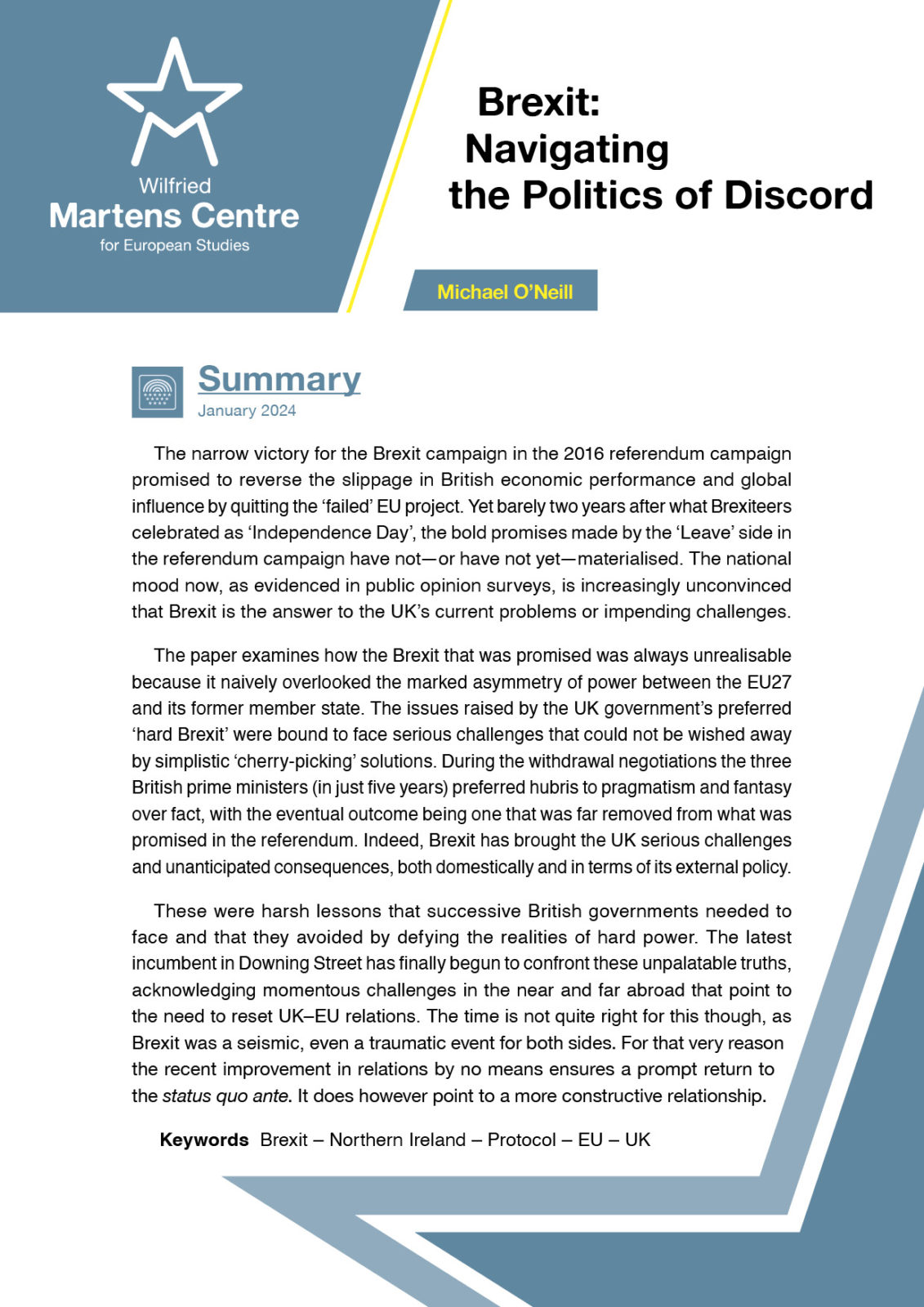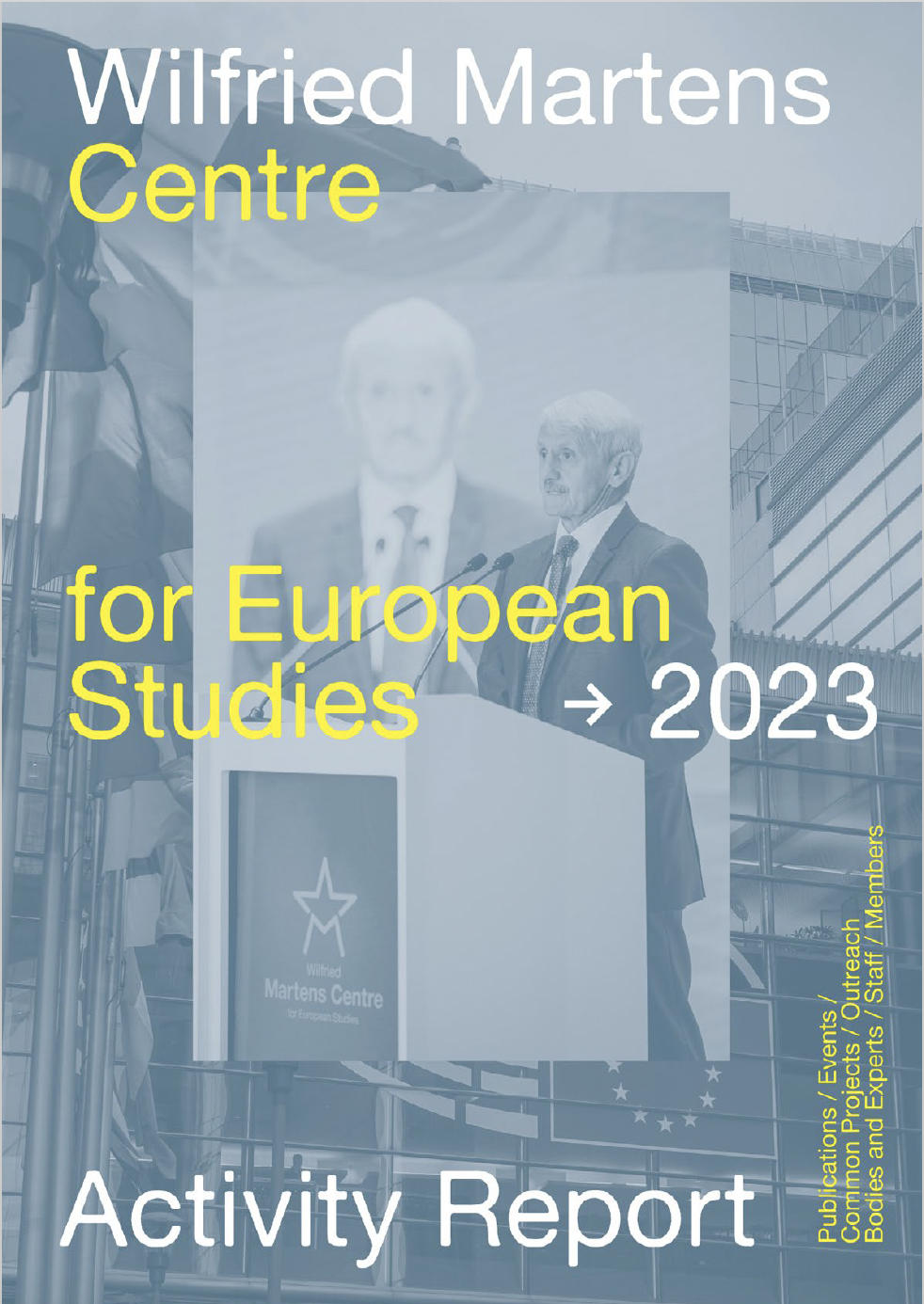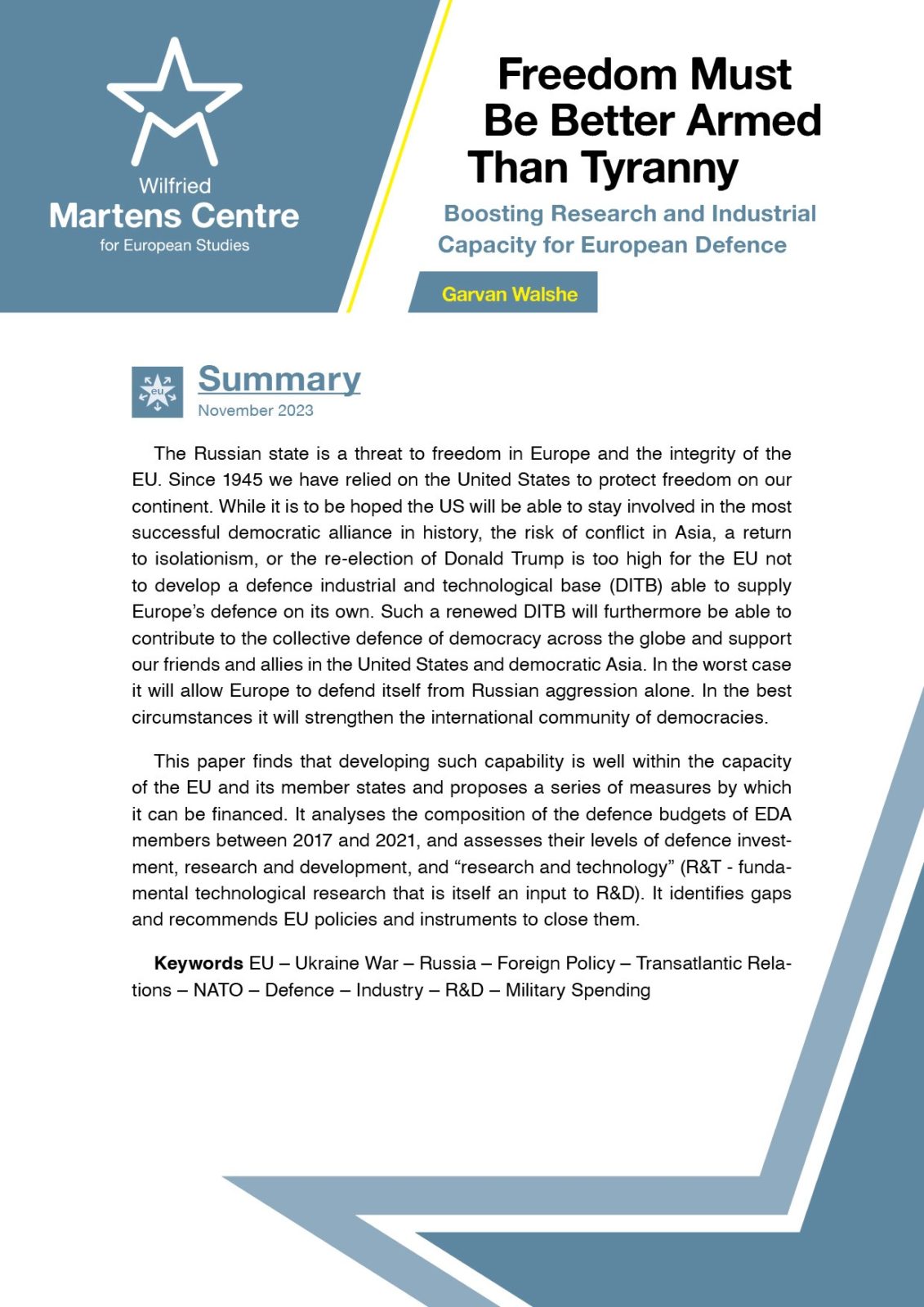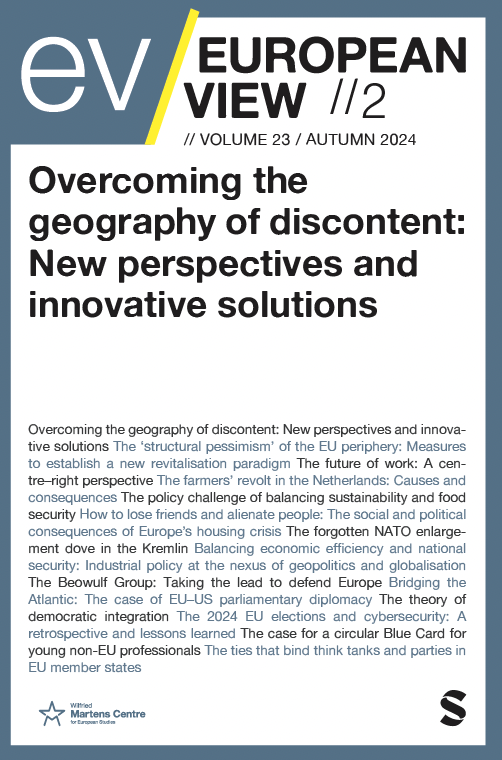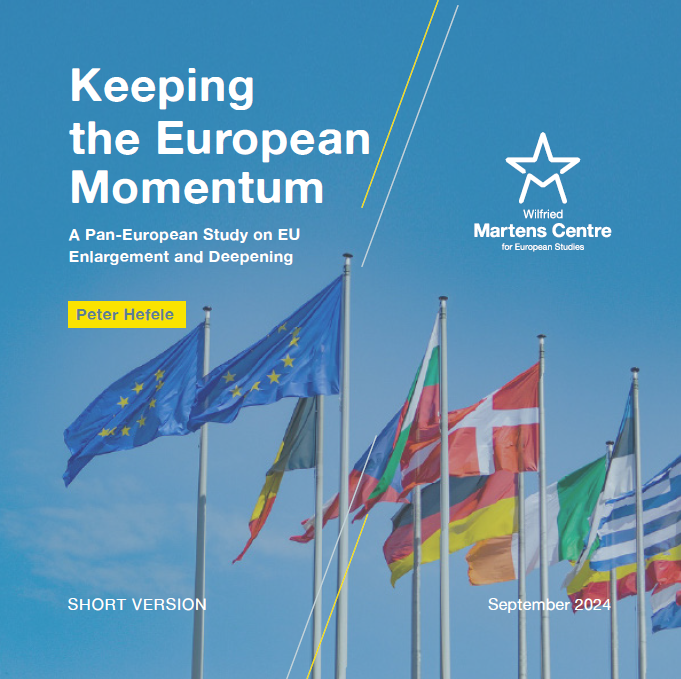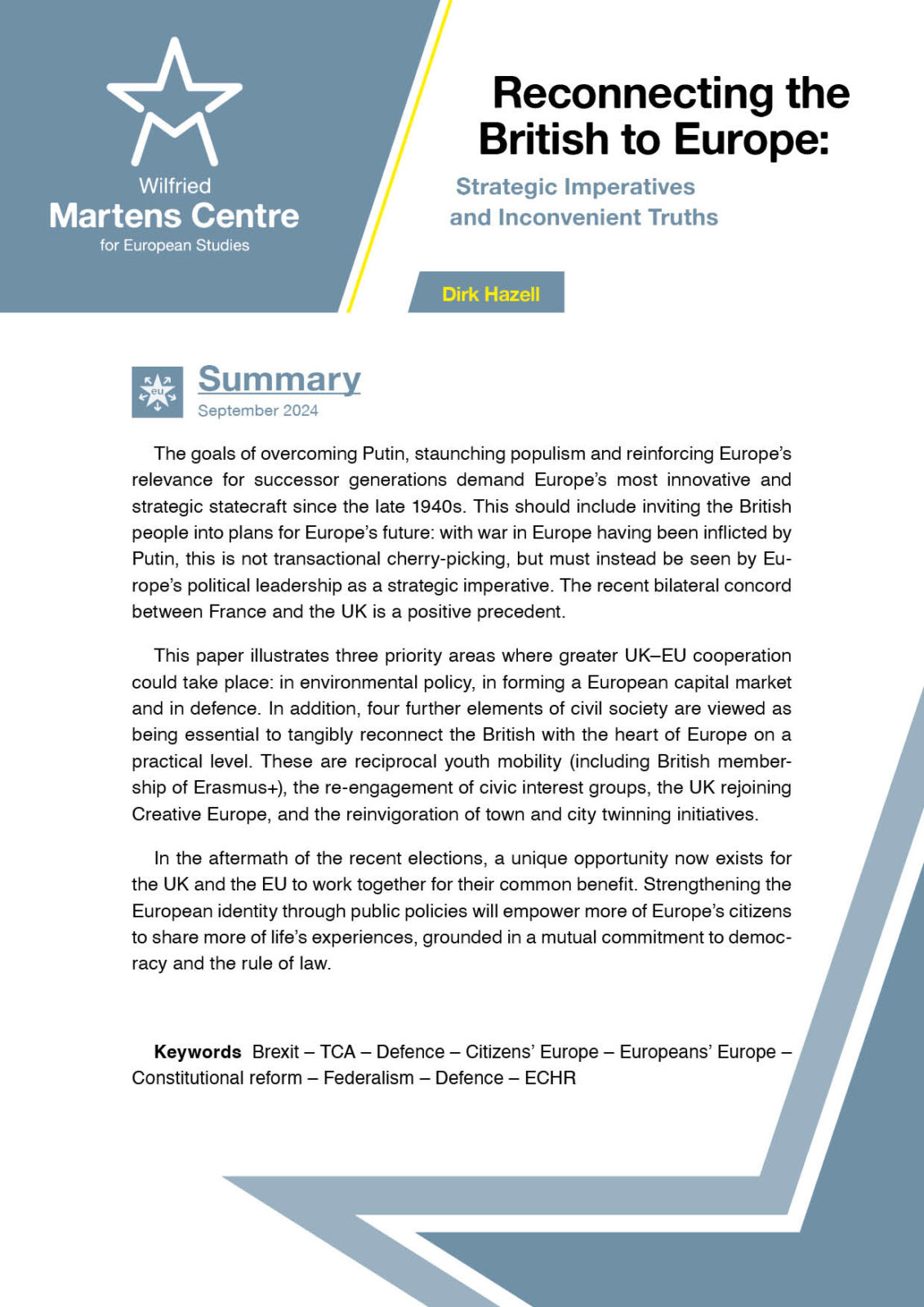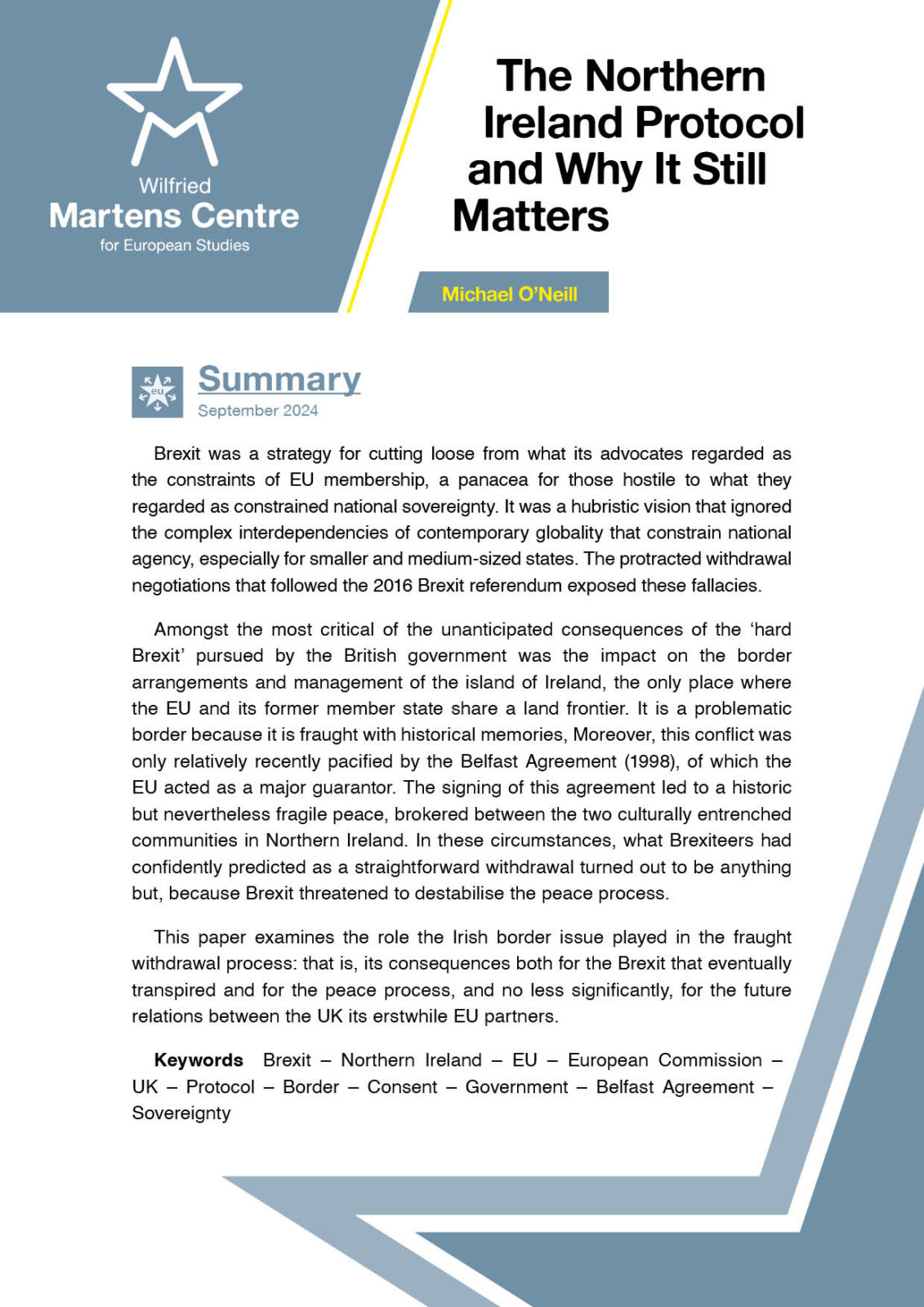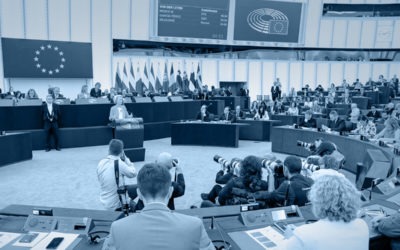Brexit: Navigating the Politics of Discord
20 December 2023
The narrow victory for the Brexit campaign in the 2016 referendum campaign promised to reverse the slippage in British economic performance and global influence by quitting the ‘failed’ EU project. Yet barely two years after what Brexiteers celebrated as ‘Independence Day’, the bold promises made by the ‘Leave’ side in the referendum campaign have not—or have not yet—materialised. The national mood now, as evidenced in public opinion surveys, is increasingly unconvinced that Brexit is the answer to the UK’s current problems or impending challenges.
The paper examines how the Brexit that was promised was always unrealisable because it naively overlooked the marked asymmetry of power between the EU27 and its former member state. The issues raised by the UK government’s preferred ‘hard Brexit’ were bound to face serious challenges that could not be wished away by simplistic ‘cherry-picking’ solutions. During the withdrawal negotiations the three British prime ministers (in just five years) preferred hubris to pragmatism and fantasy over fact, with the eventual outcome being one that was far removed from what was promised in the referendum. Indeed, Brexit has brought the UK serious challenges and unanticipated consequences, both domestically and in terms of its external policy.
These were harsh lessons that successive British governments needed to face and that they avoided by defying the realities of hard power. The latest incumbent in Downing Street has finally begun to confront these unpalatable truths, acknowledging momentous challenges in the near and far abroad that point to the need to reset UK–EU relations. The time is not quite right for this though, as Brexit was a seismic, even a traumatic event for both sides. For that very reason the recent improvement in relations by no means ensures a prompt return to the status quo ante. It does however point to a more constructive relationship.
ENJOYING THIS CONTENT?


